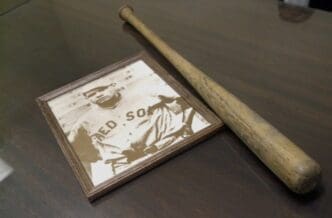On January 3, 1920, a monumental event unfolded in the world of baseball, etched into history as the beginning of the ‘Curse of the Bambino.’
On this day, Boston Red Sox owner Harry Frazee made the pivotal decision to sell the contract of baseball legend Babe Ruth to the New York Yankees. This transaction marked the start of a remarkable era for the Yankees, transforming them into a dominant force in Major League Baseball and bringing prolonged anguish to Red Sox supporters.
Babe Ruth had been a standout player for the Red Sox, leading them to a World Series victory in 1918. However, his departure from the team in 1919 reshaped the fortunes of both franchises. While the Yankees went on to secure numerous championships, the Red Sox entered an 86-year drought devoid of another World Series win. This prolonged period of misfortune, filled with near-misses and heartbreaks, was dubbed the ‘Curse of the Bambino’ by fans and sportswriters alike.
Efforts to break the curse became part of the Red Sox narrative for decades, with various attempts made to honor Ruth and lift the perceived jinx. Despite these endeavors, it wasn’t until 2004 that the ‘curse’ was finally ‘broken’ when the Red Sox clinched the World Series, ending their title drought and redefining their legacy in the sport.
The story of Babe Ruth’s transfer and its aftermath is not just a tale of sports transactions. It encapsulates the profound impact of a single contractual decision on two storied franchises and their fan bases. The narrative intertwines with the emotional highs and lows experienced by countless fans, illustrating the unpredictable nature of sports and the lasting significance of historical moments.
The trade of Babe Ruth to the Yankees serves as a stark reminder of the unforeseen consequences that one deal can impart, altering the course of history for teams and fans alike.
Source: Sun-sentinel








